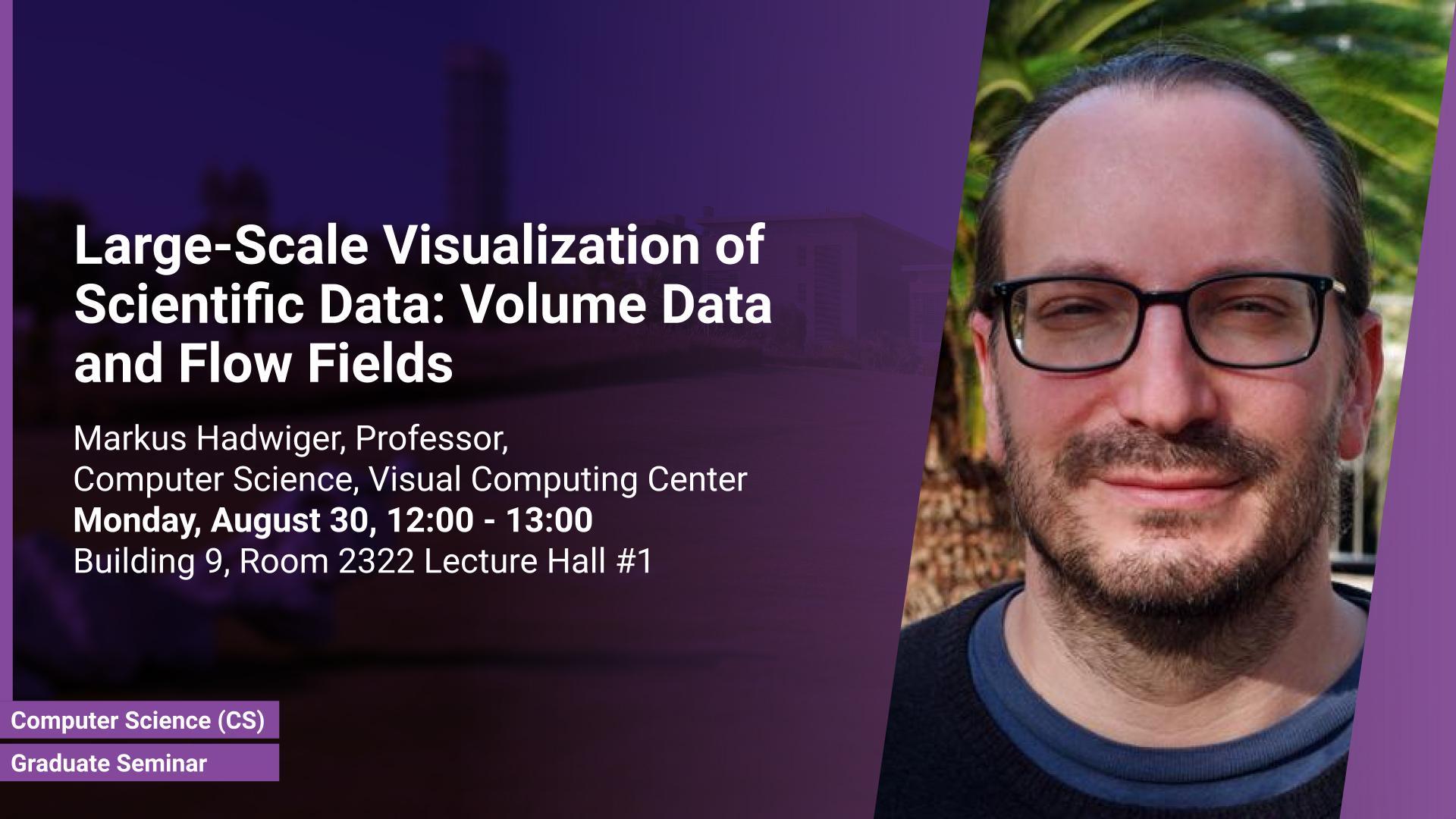Abstract
Welcome to the new semester! This talk will give an overview of the research of the High-Performance Visualization research group (vccvisualization.org) at the KAUST Visual Computing Center (VCC). Interactive visualization is crucial to exploring, analyzing, and understanding large-scale scientific data, such as the data acquired in medicine or neurobiology using computed tomography or electron microscopy, and data resulting from large-scale simulations such as fluid flow in the Earth’s atmosphere and oceans. The amount of data in data-driven science is increasing rapidly toward the petascale and further. This presents a tremendous challenge to interactive visualization and analysis. Nowadays, an important enabler of interactivity is often the parallel processing power of GPUs. This, however, requires well-designed customized data structures and algorithms. We will look at selected research projects in large-scale volume as well as flow visualization, describe the corresponding GPU data structures, and give a brief overview of new mathematical techniques that we have developed for the visualization of flow features.
Brief Biography
Markus Hadwiger is a Professor in CEMSE/CS and the Visual Computing Center (VCC) at KAUST, which he joined in October 2009. He leads the High-Performance Visualization research group at VCC. His research interests in the area of extreme-scale visual computing and scientific visualization, in particular volume visualization, flow visualization, medical and biological visualization, differential geometry and mathematical physics in visualization, image and volume processing, multi-resolution techniques, data streaming and out-of-core processing, interactive segmentation, and GPU algorithms and architecture. He is a co-author of the book Real-Time Volume Graphics published in 2006 and has been involved in many courses and tutorials about volume rendering and visualization at ACM SIGGRAPH, ACM SIGGRAPH Asia, IEEE Visualization, and Eurographics.

